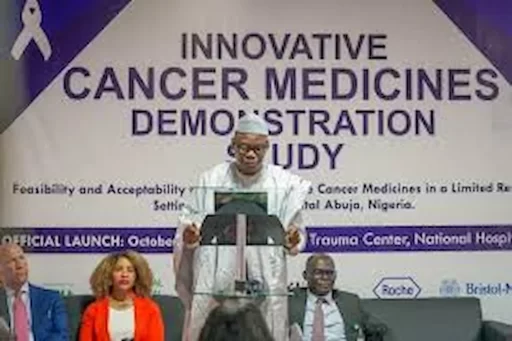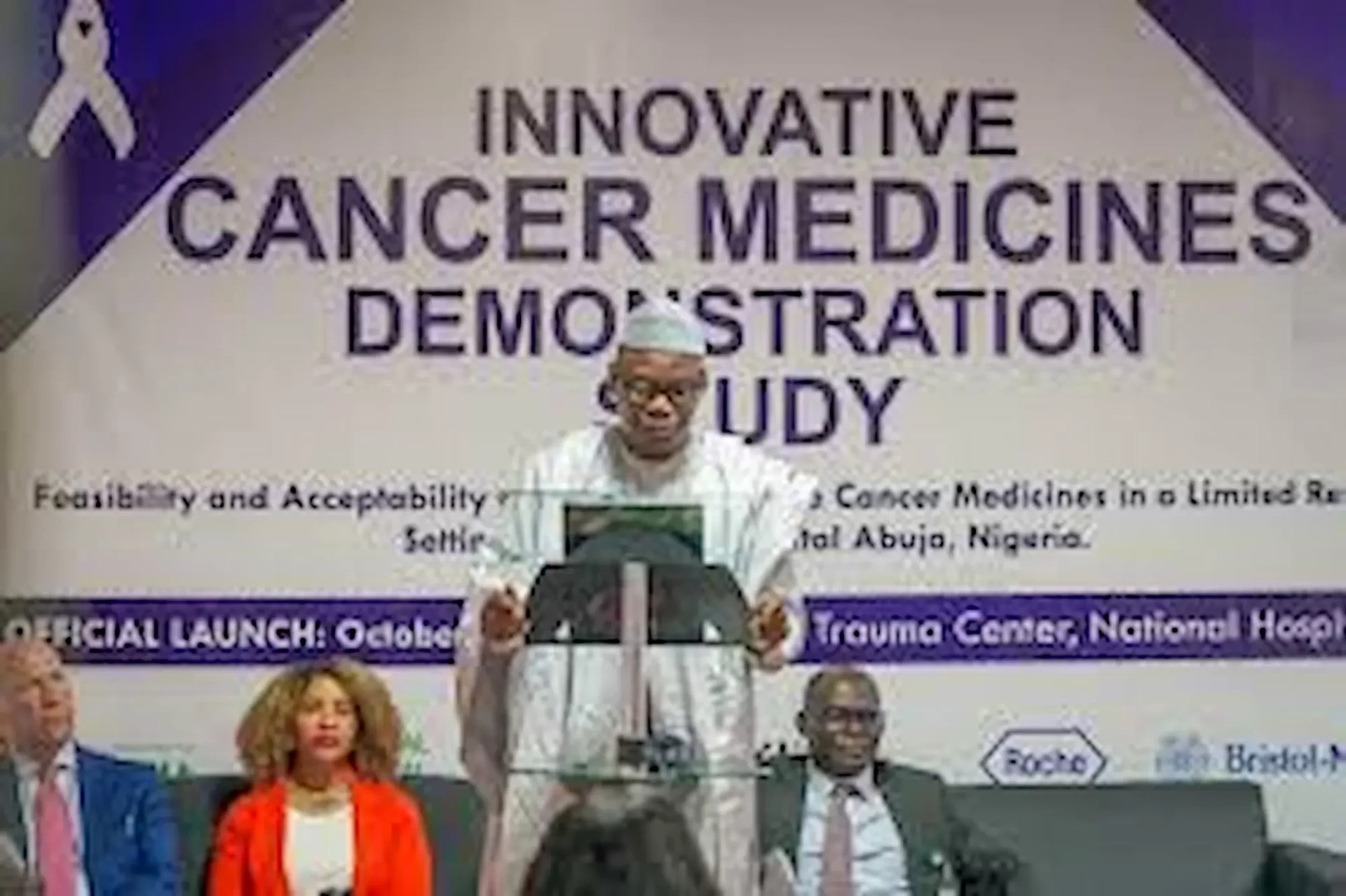Nigeria Launches Cancer Immunotherapy Demonstration, Marking Milestone in Local Oncology Research
By Naija Enquirer Staff
Nearly 40 years after immunotherapy revolutionised global cancer treatment, Nigeria has launched its first-ever homegrown demonstration, marking a major step in the country’s local oncology research and access to innovative medicine.
The Innovative Cancer Medicine (ICM) Demonstration Project, unveiled on October 21, 2025, at the National Hospital, Abuja, is designed to promote equitable access to life-saving cancer treatments and accelerate the adoption of advanced therapies within Nigeria’s healthcare system.
The initiative is a collaboration between the Federal Ministry of Health and Social Welfare, the Clinton Health Access Initiative (CHAI), the Parker Institute for Cancer Immunotherapy (PICI), and pharmaceutical giants Bristol Myers Squibb (BMS) and Roche.
“This is not merely a demonstration study—it is proof that innovative cancer care can be delivered safely, sustainably, and locally,” said Dr. Iziaq Adekunle Salako, Minister of State for Health and Social Welfare.
Dr. Salako described the project as “a symbol of hope” that patients in low- and middle-income countries will no longer have to wait decades to access the same innovations available globally. He added that the initiative aligns with the National Cancer Control Plan and President Bola Tinubu’s Renewed Hope Health Agenda, which prioritise early detection, affordable access, and local research capacity.
The demonstration introduces nivolumab, an immunotherapy drug that activates the immune system to target and destroy cancer cells. Already transforming outcomes in many parts of the world, the drug’s introduction in Nigeria marks a significant milestone in the country’s cancer treatment journey.
“Under President Tinubu’s leadership, we are building a healthcare system where no Nigerian dies unnecessarily because advanced care is out of reach,” Dr. Salako affirmed.
He noted that the Federal Government has made new budgetary provisions to strengthen oncology services, including the activation of six regional Cancer Centres of Excellence. He further highlighted ongoing investments in research, prevention, and regulatory reform to reduce outbound medical tourism driven by cancer treatment gaps.
A Historical Context of Immunotherapy
Immunotherapy, though formally introduced into clinical use around 40 years ago, has roots dating back to the 1890s when American surgeon Dr. William Coley experimented with stimulating the immune system to fight tumours. Decades later, the development of cytokine-based therapies in the 1950s–70s led to clinical use of interferon-alpha and interleukin-2 in the 1980s and 1990s.
The most transformative era came in the 2010s with the emergence of immune checkpoint inhibitors and CAR T-cell therapies, which have since become a cornerstone of modern oncology. Notably, in 2016, former U.S. President Jimmy Carter’s recovery from advanced melanoma after receiving pembrolizumab (Keytruda) showcased the therapy’s remarkable potential.
Cancer Burden and the Need for Innovation
According to the International Agency for Research on Cancer (IARC) GLOBOCAN 2022 report, Nigeria recorded an estimated 127,763 new cancer cases and 79,542 deaths that year, with about 269,000 people living with the disease within five years of diagnosis. Experts warn that the actual figures may be higher due to underreporting and limited access to care, especially in rural areas.
Globally, immunotherapy represents a paradigm shift from traditional chemotherapy by targeting specific cancer cell mechanisms, sparing healthy cells, and often reducing side effects. Although not effective for all cancers, its introduction in Nigeria signals a vital step toward personalised medicine and a more resilient healthcare system.
Health experts view the ICM Demonstration Project as a turning point—one that could reshape cancer treatment in Africa, strengthen local research, and bridge decades of innovation lag between Nigeria and the rest of the world.
As the nation’s first patient begins treatment under this initiative, the project stands as both a medical and symbolic breakthrough, reaffirming Nigeria’s readiness to embrace advanced therapies and lead regional efforts in health innovation.







